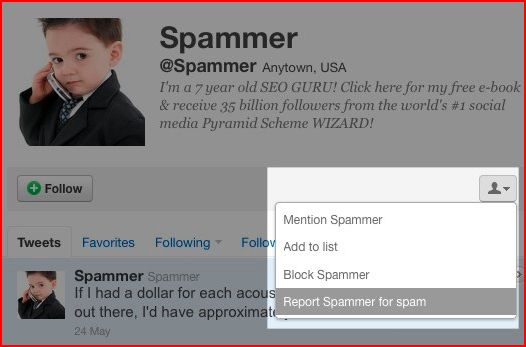Today’s post is from Sarah Fudin who currently works in community relations for the University of Southern California’s Master of Arts in Teaching program, which provides aspiring teachers the opportunity to earn a teaching degree and teacher certification online. Outside of work Sarah enjoys running, reading and Pinkberry frozen yogurt.
 As Twitter has grown rapidly in global popularity, it has also become an integral part of how universities build their brand and form a community with students, alumni and the public. If your university does not yet use Twitter, breaking into this revolutionary area of public relations will be fun and exciting. If you already represent your university using Twitter, you may find some illuminating tips here about to how to better engage your community.
As Twitter has grown rapidly in global popularity, it has also become an integral part of how universities build their brand and form a community with students, alumni and the public. If your university does not yet use Twitter, breaking into this revolutionary area of public relations will be fun and exciting. If you already represent your university using Twitter, you may find some illuminating tips here about to how to better engage your community.
What is Twitter For?
It sounds silly, but one of the major obstacles facing new Twitter users is understanding exactly what this social network does best. Twitter is not designed for distributing marketing, advertising or news media to a silent audience; websites, newsletters, print and television media already give you plenty of outlets for that purpose. Twitter is unique in the way it allows you to engage a large community in dynamic, fast-paced and surprisingly personal conversations. That means listening to and responding to individuals, as well as tweeting links and comments of interest to your university’s community.
Listen In
Twitter is all about conversations, and that means listening as well as tweeting. While many Twitter users have the impulse to only follow those users whose tweets they really want to read, this is not a good strategy for building community engagement. Instead, follow everyone who follows you. This will let them know you are interested in what your followers have to say, and it will also allow your followers to respond to your tweets with direct messages. In addition to reading and responding to the tweets of others in your community, it is a good idea to frequently search for your university’s name in the Twitterverse to see what other users are saying.
Diversify
One account named after your university can provide a central hub for engaging broadly with your community, but it is also a good idea to have separate accounts for various academic departments, athletic teams, the alumni network, university news and so on. Giving users options about which particular aspects of university life they want to follow will result in a higher level of engagement overall. Once you have created the accounts, make sure that you use each one for a distinct, clearly defined purpose. For instance @UNC_Basketball posts score reports and highlights from critical moments from the school’s basketball games, while @MBAatUNC posts links of particular interest to students in UNC’s online MBA program.
Get Personal
While online communication can sometimes feel distant and impersonal, the voices that get the most attention on Twitter are undeniably human. Write as an individual as well as a professional representative of your university. Strive to show the community that you listen to them, and that you recognize and respond to the tweets of individuals. The University of Southern California’s Master of Arts in Teaching feed, @USCTeacher, constantly poses questions about teacher education, links to student blogs and articles, and promptly replies to comments. These kinds of personal touches harness the power of Twitter in a way that traditional media never allowed.
Do Not Overtweet
Twitter has a strict limit of 140 characters per Tweet and imposing this unique constraint on users has made it one of the most popular social networks in the world. In keeping with this spirit of brevity, it is wise to limit your daily tweets as well. Consistent thoughtful use of the network will bring rewards. Tweet too often and you risk cluttering up your followers’ home feeds. As a rule of thumb, three to five tweets a day is a sufficient level of activity to gradually build community engagement.
Sources:
http://doteduguru.com/id4800-university-twitter-accounts-spring-cleaning.html
http://www.universitybusiness.com/article/10-twitter-tips-higher-education
http://patrickpowers.net/2010/10/ten-university-twitter-accounts-worth-learning-from/
http://doteduguru.com/id2251-twitter-potential-universities.html
http://velositor.com/2012/02/17/brief-us-twitter-study-online-mobile-and-demographic-findings/




